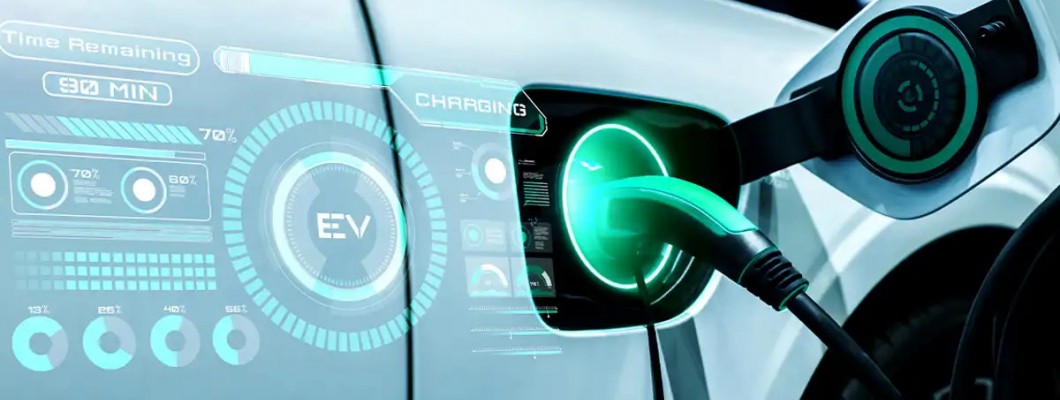A Charging Station Selection Guide for Electric Vehicle Owners

A Charging Station Selection Guide for Electric Vehicle
Owners
As electric vehicles (EVs) become an integral part of our
daily lives, one of the key concerns for owners is choosing the right charging
station. Charging stations are more than just devices that power your vehicle;
they encompass essential factors like convenience, cost, speed, and safety.
This guide will explore the critical elements EV owners should consider when
selecting a charging station to make an informed choice.
1. Charging Speed
and Power
Electric vehicles can be compatible with charging stations
offering different charging speeds. The charging speed is a crucial factor that
should be selected based on your daily driving needs and habits.
- AC (Alternating Current) Charging Stations: AC charging
stations are usually more affordable but charge vehicles slower than DC
stations. They are ideal for home use and can fully charge your vehicle within
a few hours, depending on the battery capacity.
- DC (Direct Current) Fast Charging Stations: DC fast
charging stations provide higher power, allowing your vehicle to charge much
faster. They can charge up to 80% of the battery in as little as 30 minutes,
but they tend to be more expensive and consume more energy. These stations are
ideal for those who need a quick charge on the go.
When choosing, consider your daily driving distance and how
quickly you need to complete a charging session.
2. Location of the
Charging Station
Whether you plan to install a charging station at home, at
work, or in a public space, the location is a crucial consideration. Different
usage scenarios require different types of charging stations:
- Home Charging: Home charging stations are typically AC
chargers and are perfect for overnight charging. You can install a wall-mounted
charging station in your garage or home, providing long-term cost benefits.
- Workplace Charging: Offering vehicle charging at
workplaces can benefit both employers and employees. DC fast charging stations
are more suitable for workplaces, as they allow vehicles to charge quickly
during the day and be ready for use after work.
- Public Charging Stations: Public or on-the-go charging
stations are generally equipped with DC fast chargers. These are ideal for use
in shopping malls, hotels, or highway rest areas.
3. Safety of the
Charging Station
The safety of EV charging stations is of utmost importance.
Improper charging, overheating, or electrical leaks can lead to serious
consequences. Therefore, it is essential to choose certified products that meet
safety standards.
- Automatic Shut-off: A station with an automatic shut-off
feature prevents overcharging and excessive energy consumption once the
charging process is complete.
- Leakage Protection: Charging stations should offer
protection against electrical leakage, which can be hazardous to both devices
and users.
- Weather Resistance: Outdoor charging stations must be
resistant to water, dust, and varying weather conditions. Stations with an IP65
or higher certification are ideal for outdoor use.
4. Compatibility
and Connection Types
The charging station's connection type must be compatible
with your electric vehicle. Different regions and vehicle models may use
different charging sockets. Therefore, it is important to select a station that
matches your vehicle’s charging port:
- Type 2: This is the most commonly used connector type in
Europe. Most EVs support this socket, making it the best choice if you have a
European-made car.
- CCS (Combined Charging System): CCS offers both AC and DC
charging and is a hybrid connector. It provides faster charging speeds and is
becoming the preferred system for many new EV models.
- CHAdeMO: Widely used in Japanese vehicles, CHAdeMO is a
fast-charging DC system. If you own a Japanese-made car, opt for a
CHAdeMO-compatible station.
Check your vehicle’s supported connection types before
making a decision.
5. Cost and Return
on Investment
The cost of installing an EV charging station can vary
depending on factors like the power, speed options, additional features, and
installation requirements. However, in the long run, charging station owners
can enjoy several benefits:
- Home Charging Costs: While installing a home charging
station may come with an upfront cost, it pays off over time with fuel savings.
You can also charge your car at night when electricity rates are lower.
- Workplace or Public Charging Stations: For businesses,
installing a charging station can generate extra income. Providing charging
services can attract customers and contribute to sustainability goals.
6. Smart Charging
Stations and Energy Management
As technology advances, smart charging stations are becoming
increasingly popular. These stations can be managed through mobile apps and
help optimize energy consumption. Here are some benefits of smart charging
stations:
- Scheduling: Smart stations can schedule charging sessions
during off-peak electricity hours, helping you save on energy costs.
- Remote Monitoring and Control: Using mobile apps, you can
start or stop charging remotely and monitor the charging process, ensuring
efficient energy use.
- Renewable Energy Integration: If you have solar panels or
other renewable energy sources at home, smart stations can integrate these to
optimize energy savings.
For electric vehicle owners, choosing a charging station is
not only about speed and price. Factors like charging speed, convenience,
safety, connection compatibility, and cost should all be carefully considered.
Whether you are planning to install a charging station at home, at work, or in
a public space, following this guide will help you make the best decision.
As the technology behind charging stations continues to
evolve, we can expect faster, safer, and more eco-friendly solutions in the
future. Therefore, it’s essential to ensure that your investment today is
flexible enough to meet future needs.

Leave a Comment